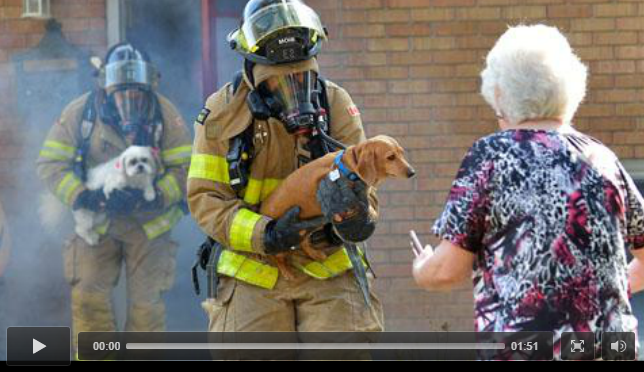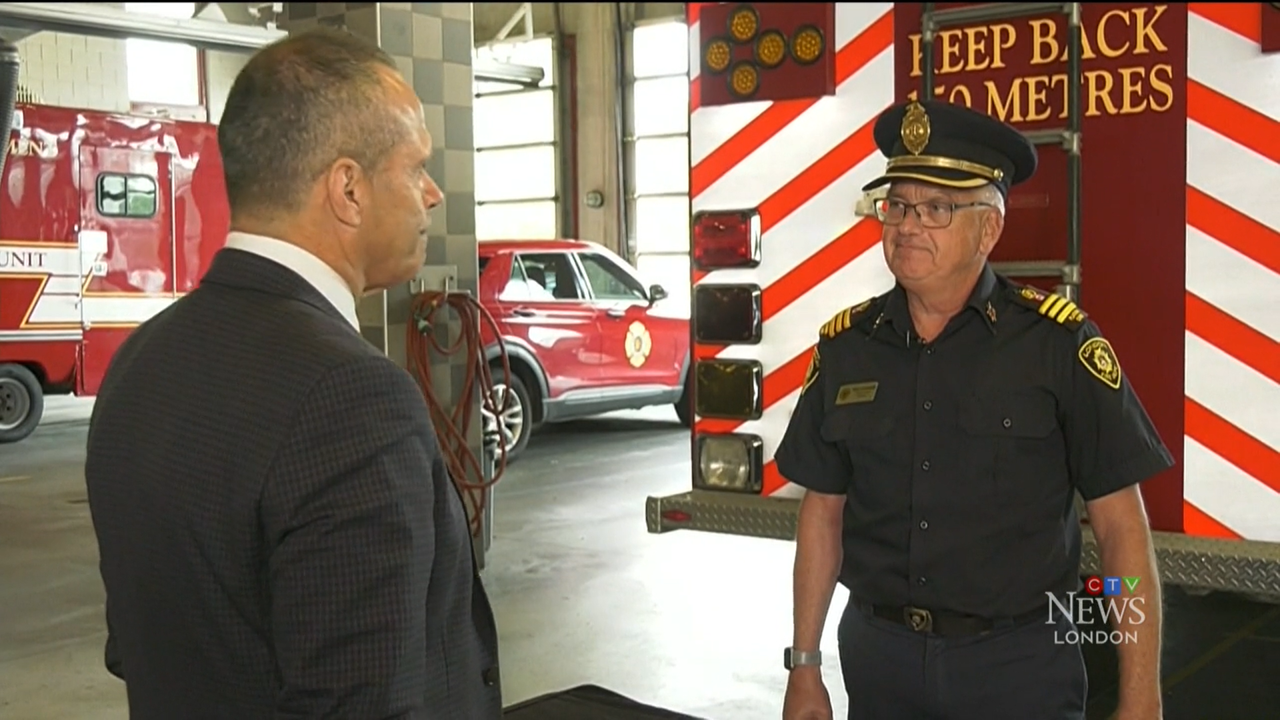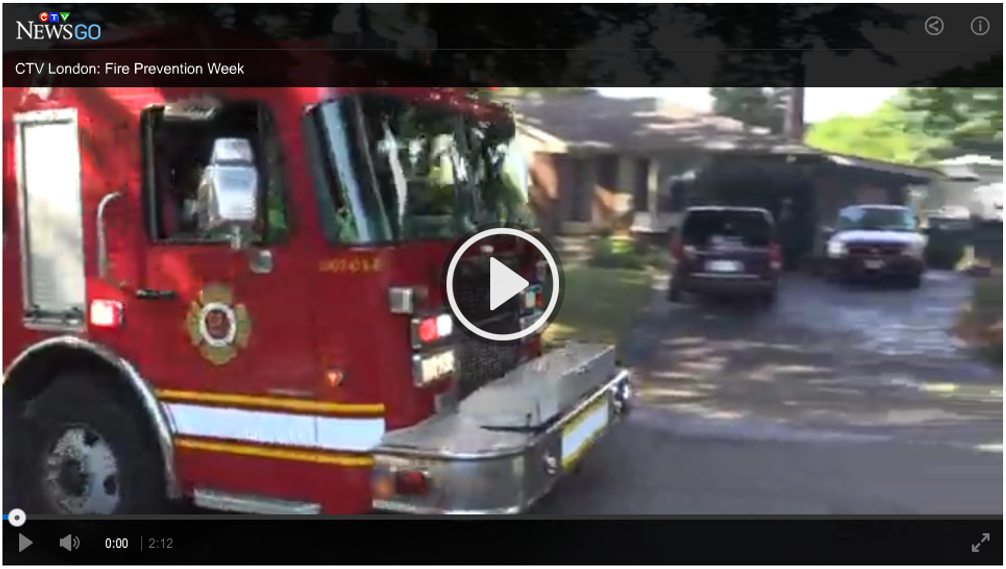Fire officials are putting on a push to get residents to organize two escape routes

By Terry Bridge, Stratford Beacon Herald via the London Free Press
STRATFORD – After one of the region’s deadliest fire seasons in years last winter, Southwestern Ontario officials have added reason to underline fire-prevention in their annual campaign this week.
A series of blazes ripped through homes in Southern Ontario late last year, killing 18 people.
The regional toll was felt from Woodstock to St.Thomas, and in a London-area native community where a family of five died in a house fire that investigators later determined was set by a child.
As the home heating season arrives, the key to avoiding similar tragedies is education and prevention, officials insist as Fire Prevention Week, organized by the National Fire Protection Association, begins.
This year’s theme — “Every second counts: Plan two ways out” — draws a line to every household, urging occupants to make plans to escape a blaze not through one exit but two.
“It’s important for everybody in the home to plan two ways out of their home,” said Jack Burt, London’s assistant deputy fire chief. “It’s also important to have a meeting place outside where everybody knows where they are.”
While the frequency of fire calls is unpredictable, based purely on seasons, Burt said there’s typically a spike as temperatures begin to drop.
“When you start putting home heating into play — wood stoves, stuff of that nature — there’s a potential for a greater risk of fire,” he said, noting the importance of cleaning chimneys and fireplaces and proper maintenance of heating appliances.
Besides fire risks, home heating season brings the risk of poisoning from carbon monoxide, an odourless, colourless gas emitted during the combustion process. Furnace and other exhaust vents blocked by snow or other obstruction can cause carbon monoxide to build up unnoticed inside a home.
Carbon monoxide detectors, not just smoke alarms, are now mandatory outside all sleeping areas in Ontario homes where fuel-burning takes place, a move the province adopted more than three years ago in the fallout of a 2008 tragedy in Woodstock when a family of four, including an OPP officer, died after a blocked chimney allowed carbon monoxide to accumulate inside their house.
St. Marys fire Chief Richard Anderson said winter typically heightens his department’s calls.
“As we head into the winter, we tend to find more residences and structural-type incidents,” he said.
This week’s fire-prevention campaign should be a timely safety reminder for all, said Neil Anderson, Stratford’s deputy fire chief. “It’s always good at this time of year to give that refresher to everyone,” he said.
The staggering run of deadly house fires in Southern Ontario last December included a blaze on the Oneida First Nation settlement, southwest of London, where a father and four boys, including a baby, died. The mother of the boys and four other kids weren’t home at the time. Investigators determined the fire had been set by one the children who died.
The fire broke out in bitter cold in the community of 1,300, and came amid another deadly house fire in Port Colborne, where two women and two children died.
House fires last season also killed in Woodstock, where two people died in separate blazes days apart in December, in Palmerston, where another resident died that month and in St. Thomas, where a New Year’s Day blaze killed a 58-year-old man.
Fire Prevention Week is timed to coincide with the anniversary of the Great Chicago Fire of 1871, a three-day inferno that killed 300 people and displaced 100,000.
During fire-prevention week, some departments will simulate house fires and evacuation drills, as London’s department plans to do Tuesday — filling a house at 98 Eldorado Ave. with fake smoke.
“When fire starts, fire spreads quite fast and the potential for flashover in a home can be as quick as three minutes, which means that nobody can survive in the home at that point,” Burt said.
The fall fire-prevention campaign also comes with reminders for householders to change the batteries in their smoke and carbon monoxide detectors.
For more information on fire prevention week, visit nfpa.org.
Source: Plan two ways out of fire | The London Free Press





